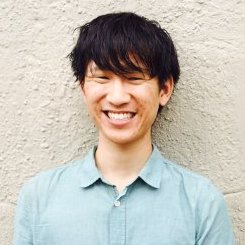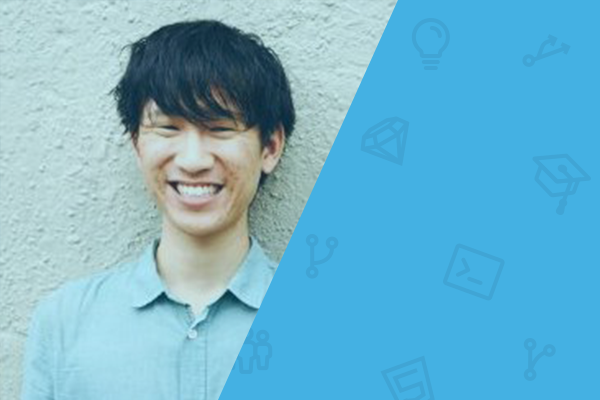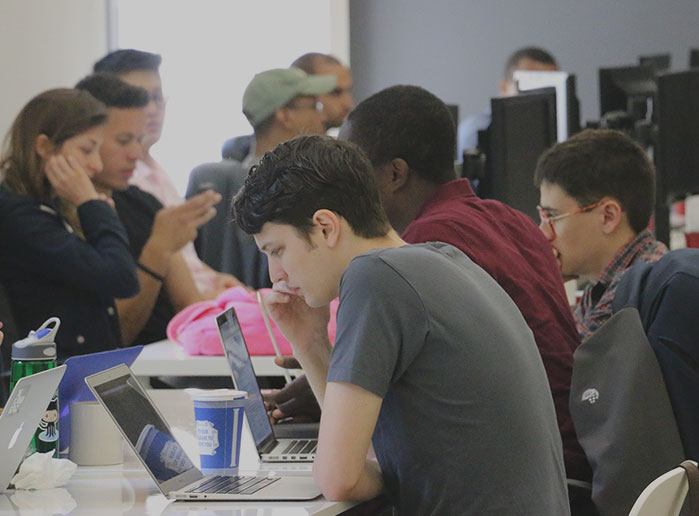Flatiron School Entrepreneur Alum Alex Au Launches Startup #2
If you’re read our eBook From Coding Bootcamp Student to Startup Founder, you’ll recognize Alex Au, a Flatiron School alum who went on to become a co-founder and CTO of language learning platform, Lingo Live. But despite Lingo Live recently receiving Series A funding, Alex was driven to pursue another startup idea he was passionate about: Uncovery, an online platform through which activists can create pathways for ordinary people to run grassroots campaigns. Read on to learn more about what Alex learned at his first startup and his plans for Uncovery.
Inspired to follow in Alex’s footsteps? Apply to our Commit to Code Scholarship – a $1,500 merit scholarship to our Online Web Developer Program.
You’ve already co-founded one startup. Going into your second now, what would you say you learned the first time around? Any mistakes you made that you plan to avoid now?
- Create a solid communication system as teams grow, like with Holacracy
- Make data open from the start by using something like Zapier and Airtable
- Create a system for things you want done, else they won’t.
- Working too hard means you haven’t defined what you really need to do well enough (that isn’t to say that I’m not working all the time). Doing less is more. Do less with greater focus and execution.
- Before building anything, make sure people really need it. Get a contract if appropriate.
You left Lingo Live right as the company got Series A funding. I bet that was a hard decision after working so hard on Lingo Live. How did you make that decision?

Uncovery founder Alex Au
To create my nonprofit startup Uncovery, I left a lot of great things: predictable income, good pay, respect, a lovely team, and a huge opportunity to learn and grow. When you decide to do a startup, however, you don’t do it for any of the things I just listed. You do it because you have an idea that you can’t stop thinking about and you want to bring it into this world. I feel that Uncovery is something that must absolutely exist, and I’m the right person for the job.
For any era other than the 21st century, I would have waited another year before leaving a company that just got its Series A so I could learn from the experience. But things are dire. You’d know if you read arctic-news.blogspot or Guy McPherson that climate change will make humanity extinct in ~10 years as temperatures increase 10 degrees Celsius. That’s science. The reason you don’t know is because we live in a capitalist society that demands endless profits and resources. Discussing a fundamental change in how we consume resources, like an 80% cut or more, is taboo in our society, so we can’t hear about it. My nonprofit startup solves the “hearing about it” problem, so it’s relevant for every grassroots movement fighting inequity and injustice.
Now that you mention Uncovery, can you give us the elevator pitch and a sense of your mission?
Uncovery is an online platform where activists create pathways for ordinary people to run grassroots campaigns and initiatives. Activists build pathways according to our “Agile Unlearning” framework, using Uncovery’s chatbot and content licensing system to save time and make money. These pathways make activism sustainable and scalable, by providing the people, money, and metrics that grassroots movements need, so ordinary people can transform their communities.
Our mission is to help people unlearn toxic beliefs and behaviors that sustain inequity, like white supremacy, colorism, and anti-science. The long-term vision is to create an “unlearning ecosystem” where people can unlearn whatever is the biggest constraint to progress in their community.
When you did you come up with the idea?
While working for my previous startup, I had a side hobby so serious I was doing it late into the night, on subways and during lunch breaks… the hobby was writing an essay about my toxic relationship with whiteness and internalized white supremacy.
For example, I can’t speak Chinese – but why is that? Before I was born, my brother got put into disabilities-special-ed class because he was too Chinese. My parents, because of the trauma of losing access to education and resources, only taught me English. But growing up, it looks bad on me that I’m the one who can’t speak. Because of white supremacy, I was estranged from my Chinese identity.
So I did a lot of self-work on these kinds of issues and the result is profound. I have a lot more control over myself, a better understanding of how society works, and a more straightforward way of finding meaning in life. I’m a lot more confident because I’m free of blaming myself for other people’s bullshit internalized white supremacy.
It took me a year to work through these issues, but if it was organized, it could have taken three months in my spare time. Uncovery was born out of the desire to create a system for unlearning the kinds of things I did, but applied to any toxic belief or behavior, and organized so people can get the same benefits with a lot less effort.
As I’ve been in the field, the concept has evolved to serve grassroots organizations more specifically, so participants are still unlearning toxic beliefs and behaviors, but in the context of building political power and grassroots movement.
[irp posts=”2916″ name=”Samantha Radocchia: Blockchain Entrepreneur, Forbes 30 Under 30, Skydiver, and Flatiron Alumna”]When did you realize you had to go all in on bringing Uncovery to life?
In working for my previous startup, I didn’t really have time to do anything else. I mean, I was a co-founder, and I did a lot of things. To really do Uncovery, I had to go all in. Of course, I reflected on the idea for months and waited until my material constraints allowed me to go.
Also, the more confident I felt about Uncovery, the less happy I was at my job. Despite the job being really good, I no longer felt it was the right place for me. I was hiding who I really was by not talking about what was important to me, and that hurts. I felt a huge sense of relief when I finally told everyone what I wanted to do and why.
How’s it going so far? Anything you’re doing differently after already doing this once before?
It’s going great – working with two grassroots organizations, which ones isn’t public info right now, and I feel very confident from interviewing lots of organizers that this project is something necessary and needed now.
One thing I’m doing differently is getting more mentors. As the technical co-founder in my previous startup, I put too much pressure on myself to solve the problems in my wheelhouse singlehandedly.
How has your programming experience helped you with Uncovery?
First, I can see with greater precision exactly what kind of work needs to be done to make a product a reality. This helps me plan more realistically and also with greater creativity because I know what’s possible through the use of technology, especially with the kind of data we need to store.
Second, I’m a lot better at doing “minimum viable product.” When you know how much work it takes to build something, you get better at cutting out what’s extra and doing the minimum, which means you get feedback faster and can improve your product faster.
Third, I can build the MVP if absolutely necessary. I’m not planning on going down this rabbit hole because I believe I can make a bigger impact conceptually, talking with clients, and by raising money, but it’s comforting to know I can make it happen.
“I would feel confident in thinking that knowing how to code is a valuable skill for doing entrepreneurship. It makes your thinking precise and you know how to plan product better and set expectations for sales better.”
What’s next for you and Uncovery?
First, building out our current initial campaigns and getting some success metrics.
Second, getting some funding so we can move faster in our work by hiring. So if you know or are a rich person and want to make a difference, reach out to me.
Third, hiring. Looking for a marketing person/co-founder and a programmer/co-founder. Shoot me a line if you’re interested. If you’re an activist or just want to hear more about Uncovery, sign up for more info at bit.ly/uncovery-activist. We do a weekly newsletter that covers topics about grassroots organizing.
Can you offer any advice for aspiring programmers who feel an entrepreneurial drive?
If you’re learning to code at the same time, I recommend getting a co-founder. As an aspiring programmer, you don’t want to be a “hammer” — testing all your hypotheses by coding a solution and releasing it in the world. Instead, you should be speaking with people and understanding their needs. That’s pretty much a full-time job, so if you’re serious about coding, find somebody who shares your vision and have them do that work while you continue learning to code.
If you’re really just starting, talk to at least 30 people before building anything, people who would seriously use your product. Do a JTBD interview or the kind recommended in The Entrepreneur’s Guide to Customer Development.
I would feel confident in thinking that knowing how to code is a valuable skill for doing entrepreneurship. It makes your thinking precise and you know how to plan product better and set expectations for sales better.
Just don’t get stuck on the problems that don’t really matter that much. Just as Avi says, the least common denominator of every programmer, is that they can code. So… don’t define yourself in that box and be more than that.
Written byJOSH HIRSHFELD
Content Marketing Manager, Flatiron School

